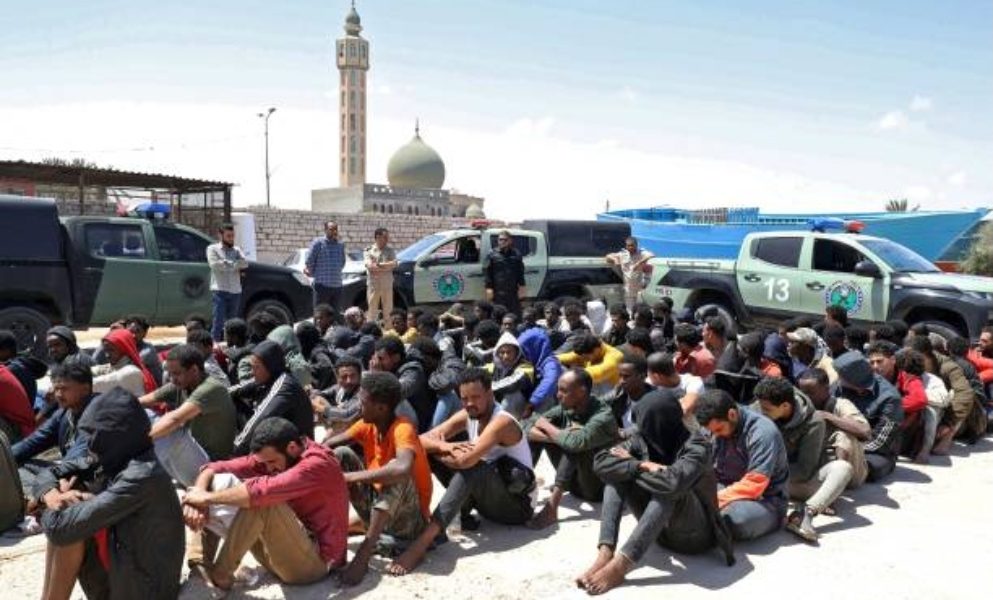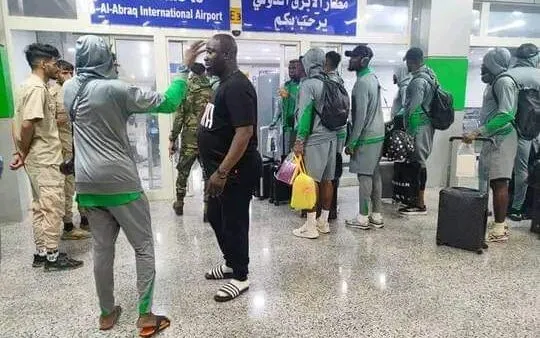Following the verdict delivered by the Confederation of African Football (CAF) in response to the complaint lodged by the Nigeria Football Federation over the recent inhumane treatment meted out to the Super Eagles in Libya, members of the Nigerian community have reported mass arrests and fines targeting their compatriots in the country.

The Nigerian football team was held at the Al-Abraq Airport in eastern Libya for over 20 hours upon arrival for a 2025 Africa Cup of Nations qualifier. This sparked widespread outrage, leading the NFF to withdraw the Super Eagles from the match and file an official complaint to CAF.
In its ruling, the CAF disciplinary committee ordered the Libyan Football Federation to pay a $50,000 fine for breaching regulations. Displeased with the verdict, the LFF President Nasser Al-Suwai’I described it as “unjust and malicious,” alleging the NFF’s influence within CAF played a role.
The backlash from Libya has been swift, with popular media outlets and TV presenters urging the government to arrest Nigerian workers without proper documentation and fine them $500 each to cover the CAF penalty. Reports indicate that the mass arrests began on Sunday, with Nigerians being detained regardless of their immigration status.

Peter Omoregbie, the President of the Nigerian community in Libya, confirmed the arrests, stating that even those with passports and residence permits were being targeted. He pleaded for international bodies to intervene, noting that the actions by Libyan authorities were unprecedented and disproportionate.
Another Nigerian resident, Omo Oba Legba, said the crackdown had intensified, with a police officer warning him not to go out as Nigerians were being arrested. He criticized the Super Eagles for causing “a problem” for other Nigerians in Libya who face daily hardships.
The Chairman of Libya’s National Institution for Human Rights, Ahmed Hamza, has warned against any retaliatory acts targeting foreign and migrant workers, cautioning that such unlawful actions could lead to domestic and international legal consequences.
The Nigerian government has been contacted for comment, but the response has been limited so far. A former Nigerian ambassador to Mexico, Ogbole Amedu-Ode, has urged the Federal Government to investigate the situation and consider reporting Libya to the African Union over the maltreatment of its citizens.



